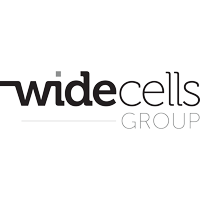Protect your family and ensure your medical wealth for generations to come.
Umbilical cord blood stem cell transplantation has increased by 300% over the last 13 years globally thanks to their use to treat over 80 different blood disorders.
Stem cells are remarkable. They are essential in our every day lives and to our normal health as they provide the regeneration and repair of tissues such as bone marrow, skin and the digestive tract.
Here you can find a breakdown of what stem cells are and where they can be found.
Overview of Stem Cells
In diseases such as leukaemia, stem cell activity is disrupted resulting in an excess of abnormal white cells.
What are stem cells?
Stem cells can differentiate into other types of cells which can then go on to make every tissue in the body. This ability can be harnessed in regenerative medicine to repair damaged tissues or organs.
More information on stem cell transplants, stem cells and variation types can be found below.
Bone Marrow Transplants VS Stem Cell Transplants
Bone marrow transplants and peripheral blood stem cell transplants (mobilised from bone marrow by medication) have been routinely carried out as a form of treatment for serious diseases and disorders such as, blood-borne cancer and severe anaemia. However, adverse effects and complications related to the mobilisation, collection and sometimes, rejection, of haemopoietic stem cells obtained from these sources, have resulted in the emergence of umbilical cord blood as an alternative source of haemopoietic stem cells. Umbilical cord blood collection does not require the administration of mobilisation medication prior to collection, and it is obtained in a completely non-invasive procedure, unlike the collection of bone marrow and peripheral blood stem cells.
Additionally, the haemopoietic stem cells obtained from umbilical cord blood are more immunologically naïve than the other collection methods, resulting in a reduced chance of graft versus host disease following umbilical cord blood stem cell transplantation. Umbilical cord blood is usually discarded as a medical waste product, however, it should be collected and stored, or, put to a better use as a transfusion product.
Umbilical cord blood stem cells can be stored either for public or private use.

